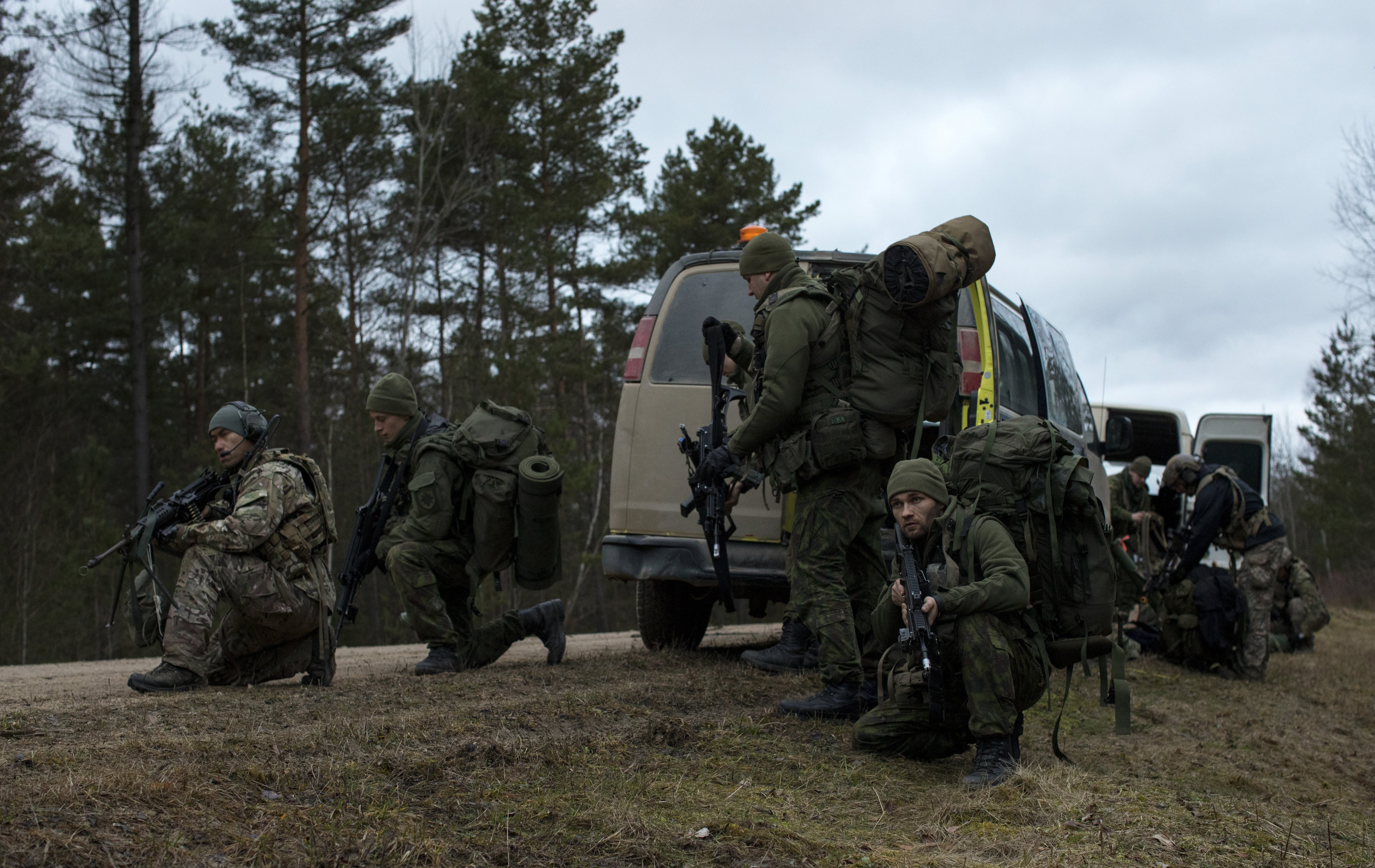Gen. Richard D. Clarke took control of U.S. Special Operations Command from Gen. Raymond A. Thomas III during a change of command ceremony in Tampa, Florida, on Friday.
Clarke, 56, is coming to SOCOM from his role as the director for strategic plans and policy, joint staff at the Pentagon, Washington, D.C. He has led soldiers in five different divisions, the 173rd Airborne Brigade, and the 75th Ranger Regiment in Europe, Iraq, Afghanistan and stateside, according to a command news release.
He also served six years in the 75th Ranger Regiment as a company commander from 1994 to 1996, battalion commander from 2004 to 2006 and regimental commander from 2007 to 2009, according to the release.
Now, Clarke will be responsible for syncing special operations forces from the Army, Navy, Air Force and Marine Corps.
As the Pentagon begins to focus more on peer adversaries like Russia and China, SOCOM’s new leader will be challenged to maintain the momentum against the violent extremist organizations that once preoccupied the whole of government.
A glimpse of Clarke’s agenda
The world continues to evolve and increase in complexity, Clarke told the Senate Armed Services Committee during his Dec. 4 confirmation hearing.
“While violent extremism persists, challenging regional stability and threatening our interest, near peer competitors grow in both capability and intent to contest our vital national interest," he said.
Clarke will be assuming command of a special operations structure that has participated in the defeat of the Islamic State’s physical territory in Iraq and Syria over the past five years, while still wrangling with extremist groups across multiple combatant commands.
In Afghanistan, the Taliban still have an estimated 60,000 personnel at their disposal, according to Marine Gen. Kenneth F. McKenzie Jr., who leads Central Command.
SOCOM troops are in the country conducting advise and assist missions alongside Afghan special operations forces, providing planning and operational knowledge, as well as a vital link to U.S. air power.
RELATED

Clarke conducted his confirmation hearing roughly one week after two Army Green Berets and an Air Force special tactics airman were killed by a roadside bomb in Ghazni province, Afghanistan.
“We’ve double the amount of Afghan commandos to be able to help with the strategy to put the pressure on the Taliban and I think that effort is bearing fruit," Clarke said.
SOCOM isn’t just focused on counter-insurgency, however. The command is uniquely qualified to counter the maligned activities of Russia and China, Clarke said in December.
Clarke said he wasn’t currently asking for more SOCOM operators, but that missions abroad could expand.
For instance, U.S. special operators are already “conducting training with special operations forces from nations that are within NATO and within Russia’s near abroad,” Clarke said.
RELATED

Other units within SOCOM, like military information support operations, psychological operations and civil affairs, could also see a boost under Clarke.
“Some are actually stationed in embassies around the world in support of the chief of mission at those embassies. Those help build a network,” Clarke said. “I’m not advocating for additional resources at this time, but I am looking to make sure that the people are prioritized in the right places.”
Gen. Thomas’ retirement
Thomas, 60, has commanded SOCOM since March 2016, and is now retiring after nearly four decades of military service.
“I’m compelled to acknowledge that the opportunity with the SOCOM team has been one of the most rewarding experiences of my life,” said Thomas. “I was quickly amazed by the span and scope of our organizational activities and extraordinary leaders that comprised this eclectic headquarters.”
Acting Secretary of Defense Patrick M. Shanahan presided over the change-of-command ceremony and commended Thomas for his service.
“Since the day you pinned on the black and gold Ranger tab you’ve been leading the way. This includes your numerous combat deployments in support of historic missions from Operation Urgent Fury in 1983 to Operation Enduring Freedom in 2013,” Shanahan said.
Thomas deployed to Afghanistan and Iraq multiple times from 2001 to 2013, and was wounded in combat in 2009, Shanahan said.
"In 39 years of distinguished service, you’ve embodied the West Point motto duty, honor, country,” he added.
Kyle Rempfer was an editor and reporter who has covered combat operations, criminal cases, foreign military assistance and training accidents. Before entering journalism, Kyle served in U.S. Air Force Special Tactics and deployed in 2014 to Paktika Province, Afghanistan, and Baghdad, Iraq.




